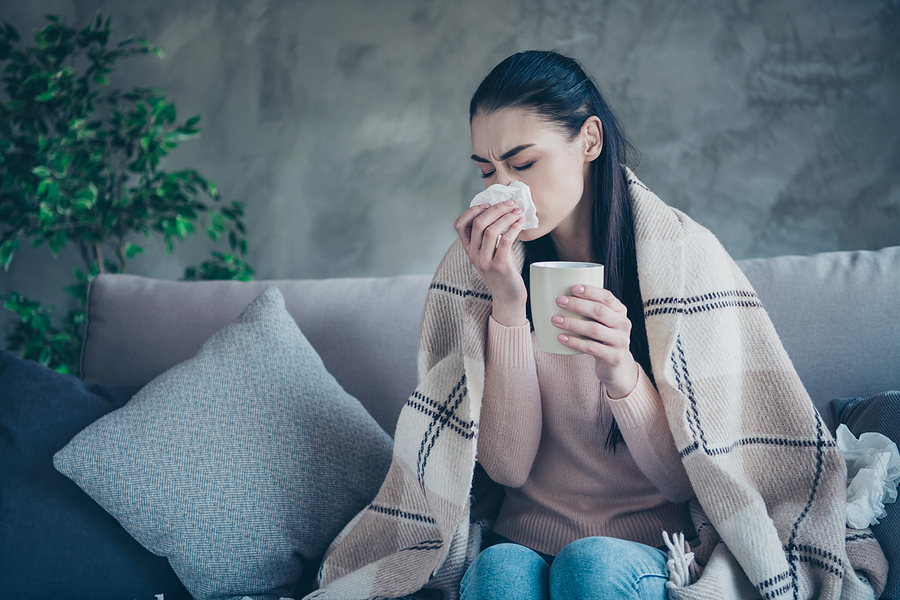There’s a common misconception that flu season begins in the fall and is over sometime around the new year. In fact, it extends well into the spring and is the cause of many hospitalizations and deaths annually.
The CDC reports that flu activity has increased significantly this year. The active strain, called H3N2, is highly contagious. While everyone is trying to remain safe from the COVID-19 pandemic, it’s equally important that you take some precautions to avoid getting the flu.
How You Can Prevent the Flu
There were some early indications that this year’s flu vaccine isn’t as effective against the most active strain. But, that doesn’t mean it’s not effective at all, and there are still multiple strains of the flu that can impact a person’s health. The CDC still recommends that everyone get the vaccine whenever possible, and manufacturers have stated there should be plenty available to meet anticipated demand.
Some of the other ways you can avoid getting the flu are similar to things you’ve been doing to avoid contracting COVID-19. These include:
- Avoid close contact with people who are sick;
- Wash your hands frequently with soap and water or use hand sanitizer when soap and water aren’t available;
- Avoid touching your mouth, nose, and eyes; and
- Disinfect and clean objects and surfaces that could be contaminated with germs.
Signs and Symptoms of the Flu
Some of the common signs and symptoms of the flu include:
- Chills or fever (not everyone gets a fever)
- Sore throat
- Stuffy or runny nose
- Cough
- Body or muscle aches
- Fatigue
- Headache
What to Do If You Get the Flu
Unfortunately, many of the signs and symptoms of the flu are similar to those of COVID-19. If you are unsure whether you have the flu, a common cold, or COVID-19, it’s important that you isolate yourself immediately to avoid passing something serious on to another person.
If you believe you have the flu, the CDC recommends that you:
- Remain home and avoid contact with others until you have been without a fever for a minimum of 24 hours.
- Cover your mouth and nose when you sneeze or cough.
- If you are very sick, contact your physician to discuss the possibility of antiviral drugs.
- Avoid going to the emergency room unless you are seriously ill.
MedTrust provides mobile healthcare services throughout the southeast. We operate our ambulance services 24/7 with the goal of improving patient outcomes through excellence in care. Named the fastest-growing company in South Carolina, we also have a growing presence in North Florida. Contact us today to learn more about our service or to find out how you can become a member of our team of professionals.

